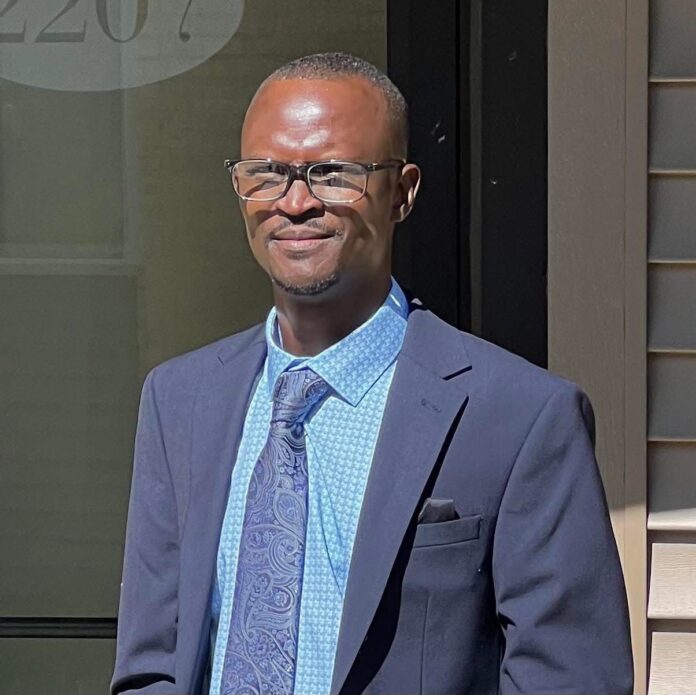Dr. Lamin B Keita
After listening to President Barrow’s speech, I found his recent meeting with religious leaders intriguing. However, it was disappointing that he did not tackle the urgent issues at hand—namely, internal corruption, escalating crime rates, pervasive poverty, the lack of a new constitution, and the deteriorating healthcare and educational systems in the country. These problems are critically undermining the very foundations of our democratic institutions and need immediate attention.
Instead, Barrow’s remarks skirted around the issue of regime preservation, leaving many of us questioning whether there is a genuine commitment to tackling this pervasive problem. His failure to confront this challenge head-on only serves to deepen the public’s disillusionment and erodes trust in the very system that is supposed to serve his government. In a democracy, transparency and accountability are not just ideals to aspire to; they are essential elements that must be actively upheld to prevent the decay of public trust.
Without addressing corruption, democratic values become hollow promises, weakening the structures that uphold a just and equitable society. The reluctance to address these issues not only undermines the credibility of Barrow’s leadership but also emboldens those who exploit the system for personal gain. As Gambian citizens, we must demand more from our leaders and hold them accountable to ensure that the principles of democracy are not merely rhetorical devices but active commitments—for collective interest. As journalists and citizens combined, cannot afford to remain passive observers while the very essence of our democratic framework is compromised by those who place personal interests above the common good.
To restore faith in our democratic processes, it is imperative that we advocate for robust reforms that enhance transparency and reinforce mechanisms of accountability. This requires not only a collective effort from the public but also a willingness from those in power to genuinely embrace change and prioritize the long-term health of our democratic institutions over short-term political gains.
Barrow and his regime must understand that fostering a culture of integrity and responsibility, we can begin to rebuild the foundations of democracy and ensure its resilience for future generations. This will only come through sustained vigilance and active participation to counteract the corrosive effects of corruption that threaten to erode the very fabric of democratic governance. As the leader of all Gambians, Barrow must acknowledge that the fight against corruption, poverty, rampant crime, and our faltering health and education systems is not just a one-time effort or a one-size-fits-all temporary imitative or uniform solution. It is a persistent commitment that demands active participation and constructive critique and collaboration from every sector of society.
Together, we can create lasting change and build a brighter future for our nation. If Barrow successfully adopts these democratic standards, he will undoubtedly create an enduring legacy that will instill pride in the village of Mankamang Kunda for generations to come, reinforcing his impact on The Gambia’s future and ensuring a lasting tribute to his leadership.
Democracy, a system built on the principles of representation and accountability, is increasingly under threat from internal corruption. This essay explores how corruption erodes public trust, undermines political institutions, and ultimately leads to the decline of democratic values. One of the most immediate effects of internal corruption is the erosion of public trust in government. When citizens perceive their leaders as corrupt, they become disillusioned with the electoral process. This disillusionment often results in lower voter turnout and increased apathy towards civic engagement, weakening the very foundation of democracy. Corruption also undermines political institutions by prioritizing personal gain over public service.
Elected officials may engage in bribery or nepotism to secure power and influence, leading to policies that benefit a select few rather than the general populace. Such practices create an environment where only those with wealth or connections can succeed, further entrenching inequality and disenfranchising ordinary citizens. The consequences of internal corruption in the country extend beyond immediate governance issues; they threaten peaceful coexistence and the democratic values themselves.
As corruption becomes normalized within our political systems or institutions, it fosters cynicism among citizens regarding their rights and responsibilities. Over time, this will theoretical and empirically lead to authoritarian tendencies because the people will start to lose faith in our democracy’s ability to deliver justice and equity as well as resolve our collective interest.
The decline of democracy driven by internal corruption poses a serious challenge for societies around the world. Mr. President Barrow, as you rightly pointed out, businesses such as CFAO, GPTC, GGC (SEKOs), and NTC collapsed after 1981. However, it is essential for you and your administration to investigate deep into the reasons behind these failures and determine what effective state interventions are necessary to prevent them from happening again. My research suggests that these institutions did not falter primarily because of the events of 1981; instead, they suffered due to systemic corruption and the deficiencies of the governing regimes at the time. By addressing these deficiencies through transparency measures and robust accountability frameworks, our nation can restore trust in democratic processes and ensure that your government truly reflects the will of the people.






